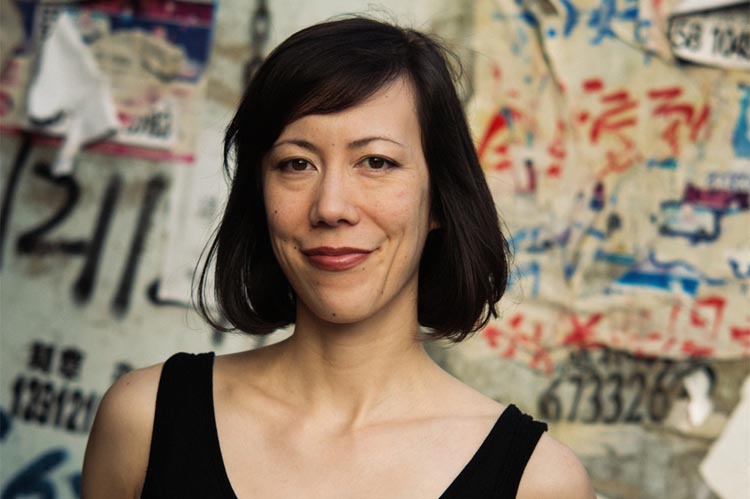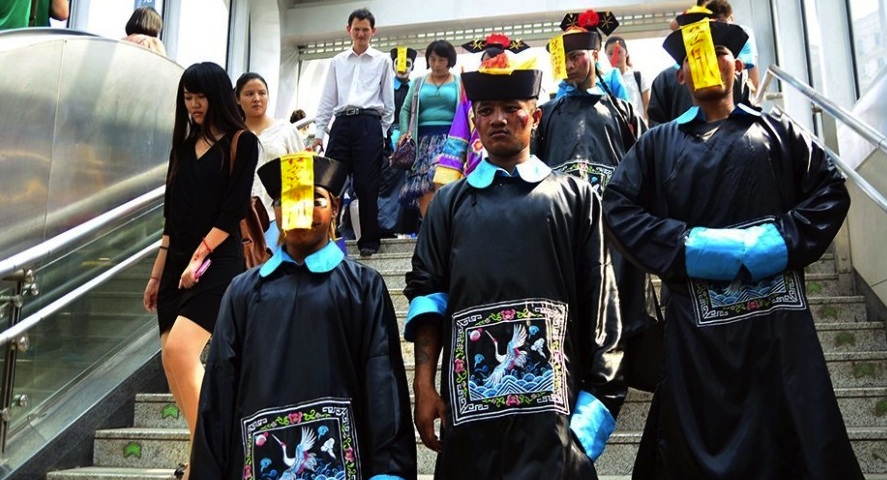Six years in the making and with a narrative spanning several centuries, Susan Barker’s The Incarnations, is a towering, sweeping ode to Beijing life. To celebrate its release, we meet with the acclaimed London author to discuss life in the capital, while Aelred Doyle, offers a first-look review.
By Stephen George
On capturing the character of Beijing
I arrived in Beijing in the summer of 2007. I wasn’t sure exactly what I wanted the book to be about, but I knew I wanted it to be a Beijing book and for Beijing to have a central presence. I met a taxi driver one night – sometime around December 2007 – and realized then, after talking with him about all the different districts, and all the different types of passengers, that a good way to present Beijing would be through the windscreen of a taxi.
On working in a country where you can’t fully understand the language
I think you become more of an observer. You go into your own world more; when I was writing my first novel in Japan, I lived in a small town outside of Tokyo teaching English. I was one of only three foreigners in the whole town. Everyone else – students, teachers, neighbors – all spoke Japanese. Not having anyone to talk with made me want to write; I’d write in English almost to have a conversation with myself, to describe what I’d experienced during the day.
On researching characters
I didn’t research in a really intensive way; I did it quite passively, through observation. I spent around six months lodging with Chinese families, picking up on their domestic habits. I moved outside of the city, far away from Sanlitun and all those other distractions. If I wanted to meet friends it would take me 90 minutes by bus.
On being considered an ‘outsider’
At one of the readings I did in Chengdu, a Chinese girl in the audience asked me: ‘Why should Chinese people read your book?’
All you can offer is a perspective. There’s this idea that people in China have this very unique mindset that’s different and incomprehensible to people outside of China. But I don't feel that way. I’ve lived in the UK, the US, Japan, Korea and China. Yes, there’s surface cultural differences, in mannerisms and behavior, but underneath everyone is the same. We all want the same things, have the same desires in life. Material rewards, security, status. What differs, to a lesser extent, is how people express love and denote status.
On becoming ‘someone else’
When I was writing The Incarnations I did reorientate my thoughts. My main character is a working class Chinese guy, well, he comes from a wealthy background, but he’s working class, so I knew he was going to have a different set of values to me. How would he think about the world, what political beliefs would he have? Would he have religious beliefs? Would he be an atheist? I had to consider how his way of looking at the world would differ from my own. I also had to pay attention to smaller behavioral things, like where would he get his hair cut, what brand of cigarette would he smoke.
On historical inspiration
I spent a lot of time reading; eventually, I decided on five different historical eras. As I began to research these eras, I found different characters and stories naturally came to the fore. Some of the historical stories are incidents. The Ming Dynasty 11th emperor Jiajing, for example, was known for being a sexual sadist. He sexually tortured his concubines, and one of the stories is based on this incident where 16 of his concubines plotted to assassinate him. They went into his bedroom one night and tried to strangle him. But they tied the noose wrong and the plot was eventually thwarted. But obviously I take a lot of liberty, I’m not a historian or academic, so I’m not constrained in the way I present the facts. I can invent. Also the past life stories [in the novel] are narrated by an unreliable source in the present, which gave me further license.
On spending six years writing a novel
I was always in it for the long haul. I discarded my first draft after about a year. I think I had to write the wrong book, to figure out the actual book I wanted to write. It took so long to write, in a way, because I was learning about China as I was writing it, so I had to redraft and redraft to accommodate the new insights and knowledge that I was gaining. When you’re an old China hand, or have spent many, many years living here, you take things for granted, or just don't notice things any more. When I first arrived, everything was new, and so I noticed a lot of things that ended up in my book. In some ways, you experience a different reality.
On the future of the novel
I’m not convinced the novel is going to survive much longer. People reading novels today tend to remember life before social media. They have different habits. But, in the future, this won’t be the case. I think the novel will no longer be able to compete with digital technology. It is depressing, but, then society and culture are both continually evolving. This may sound strange coming from someone who spent six years writing a novel, but I don’t have a choice. It’s all I know how to do – writing fiction, writing books.
On the impulse to write
I wrote this book to learn about China. I have a very didactic streak. I don’t want to turn my gaze inwards – to write about a community I already know a great deal about. I like to learn while I’m writing.
First-look review
By Aelred Doyle
Overburdened taxi driver Wang struggles through the choked city of Beijing each day, doing his best to retain dignity and decency as he deals with the tribulations of daily life. It could be worse. At home are his wife Yida and daughter Echo and, as a family they are just keeping their heads above water.
Then he starts getting long, strange letters from someone who clearly knows a great deal about him. In fact, the writer claims to have known Wang over five previous lives – as lover, parent and friend – from the Tang Dynasty to the Cultural Revolution. Each new letter describes one of those lives, moving closer to the present each time.
Wang is thrown, and quickly suspects a man from his past. For Wang does have a past life that he has chosen to forsake: one with a rich, corrupt father, a scheming stepmother and, most painfully, the madness and death of his mistreated mother, who was gradually undone by being unable to lie to herself the way everyone around her did.

The Incarnations by Susan Barker
Wang is committed to an asylum for some time, and becomes the lover of fellow inmate Zeng, before putting the experience behind him. Or so he thinks. Now he finds Zeng again and accuses him of being the letters’ anonymous author.
This is a beautifully structured novel, and the interspersed letters describing previous lives are engrossing and sharp. These past lives feel too real to be mere metaphor. Cruelty, betrayal and slavery reoccur over the centuries and are echoed in Wang’s modern existence.
Individually, each letter is also a thrilling, vivid story, with the tale of young Jin Dynasty boys dragged across the desert as slaves after Zhongdu falls to the Mongols perhaps the most horrifying and effective. Palace concubines suffer and finally plot murder; pirates kidnap and rape during the Opium Wars; schoolchildren turn on each other.
Each of these tales is rich in detail. Barker knows her stuff, allowing her to poke fun at the genres she works within, such as the chatter that high-class Tang Dynasty etiquette demanded:
“Isn’t the spring weather fine? Aren’t the cherry blossoms exquisite in bloom? Isn’t the brevity of their flowering expressive of the transience of life? What splendid cakes these are!”
Wang’s own story is less bloody and dramatic than the tales in the letters, but the same brutal forces continue to shape his real life, in the same way that endless new towers shape the capital – “the monuments to capitalism soaring up. Wang’s own growth, in contrast, has been stunted. China may be rising, but he is not.”
But this makes The Incarnations sound like a heavy read when in fact we flew through it. The prose is light and often witty, and the characterization is one of the book’s most impressive aspects. Baldy Zhang, the crude co-owner of Wang’s taxi, with a contented routine of food, sleep and online pornography, is a comic delight, as well as a symbolic counterpoint to Wang’s anguished relationship with day-to-day life.
Lin Hong, Wang’s stepmother, is a delicious creation, vicious and cold as she cooly wreaks revenge on her crippled husband, while remaining understandable and even sympathetic. That said, we shiver as much as Wang at the idea of her getting her claws into Echo.
And then there’s Zeng, who is brave and suffers for it. Electric shock therapy has left him illiterate but he finds a way to get by. The complicated ripples that the letters create in Wang’s life threaten to become waves to capsize Zeng yet again. But here the idea of past lives makes some sense, as the two are drawn together once more, for better or worse.
If every good novel is asking a question, the question here is whether it’s possible to live a decent life in an indecent world; which is really the question of whether we can ever be free. As the mysterious correspondent tells him: “You long for transcendence, Driver Wang. You long to escape the meaninglessness of your life. But first you must break free of the human bondage holding you down.”
When the mystery of the letter-writer’s identity is revealed, the truth turns out to be both uplifting and horrifying. There is tragedy, though perhaps not where the reader expects it, but there is also hope in this immensely satisfying and intelligent book.






















0 User Comments